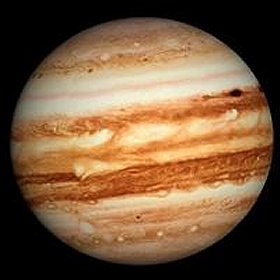Hi little astronauts!
Do you know the names of all the planets? Let's check it and know curious interesting facts about them.
¿Sabéis los nombres de todos los planetas? ¡Vamos a comprobarlo y a aprender datos interesantes sobre ellos!

* Mercury - The planet with the second highest temperature in our solar system and the closest planet to the Sun.
(Mercurio es el planeta con la segunda temperatura más alta de nuestro sistema solar y el planeta más cercano al sol)
(Mercurio es el planeta con la segunda temperatura más alta de nuestro sistema solar y el planeta más cercano al sol)

* Venus - The second planet from the sun. Venus was the name of a pretty Greek goddess.
(Venus es el segundo planeta desde el sol. Venus era el nombre de una preciosa Diosa griega).
(Venus es el segundo planeta desde el sol. Venus era el nombre de una preciosa Diosa griega).

* Earth - It is our home planet and has one moon.
(La Tierra. Es nuestro planeta y tiene una luna).

* Mars - The closest planet to the Earth. Scientists thinks it has life.
(Marte es el planeta más cercano a la Tierra. Los científicos piensas que hay vida allí).
(Marte es el planeta más cercano a la Tierra. Los científicos piensas que hay vida allí).

* Jupiter - The largest planet in the solar system.
(Júpiter es el planeta más grande del sistema solar).
* Saturn - Sixth planet from the sun. It has giant rings surrounding the planet.
(Saturno es el sexto planeta desde el sol. Tiene unos anillos gigantes alrededor).

* Uranus - Sometimes called the "Sideways Planet"
(Urano, llamado a veces "El planeta oblicuo").

* Neptune - The farthest planet from the Sun.
(Neptuno, el planeta más lejano del sol).
(Neptuno, el planeta más lejano del sol).
Pluto is no longer classified as a planet due to its small size and strange orbit.
(Plutón no se considera un planeta debido a su pequeño tamaño y a su extraña órbita).
(Plutón no se considera un planeta debido a su pequeño tamaño y a su extraña órbita).
____________________________________________________________________
____________________________
____________________________
DO YOU KNOW WHAT?
There is a relationship between the names of the planets and the name of the days of the week. Think of it! Moon-Monday...
(¿Sabes qué? Hay una relación entre los nombres de los planetas y los nombres de los días de la semana. ¡Piénsalo!: Luna-Lunes...).
_________________________________________________________________
___________________________
_________________________________________________________________
___________________________
GRAMMAR (THERE IS/ THERE ARE)
First, watch this video about the use of "There is/ There are".
(Primero, mira este vídeo sobre el uso de "There is/ There are").
height="344">
Look at this teacher! She explains the use of "there is" and "there are".
¡Mira a esta maestra! Ella explica el uso de "there is" y "there are".
__________________________________________________________________
____________________________
REMEMBER!
AFFIRMATIVE:

Click HERE to complete this quiz.
(Haz click AQUÍ para completar este cuestionario).
(Primero, mira este vídeo sobre el uso de "There is/ There are").
height="344">
Look at this teacher! She explains the use of "there is" and "there are".
¡Mira a esta maestra! Ella explica el uso de "there is" y "there are".
__________________________________________________________________
____________________________
REMEMBER!
AFFIRMATIVE:
- "There is" is used for singular sentences. "There is a computer in the rocket".
- "There are" is used for plural sentences. "There are some CD's in the rocket".
NEGATIVE:
- "There isn't" is used for singular sentences. "There isn't a telescope in the rocket".
- "There aren't" is used for plural sentences. "There aren't any plants in the rocket".
INTERROGATIVE:
- "Is there...? is used for singular sentences. "Is there a telescope in the rocket?"
- "Are there...? is used for plural sentences. "Are there any tables in the rocket?"
_______________________________________________________________
_____________________________
PRACTISE.
And now practise what you have learned.
(Y ahora, practica lo que has aprendido)

INTERROGATIVE:
- "Is there...? is used for singular sentences. "Is there a telescope in the rocket?"
- "Are there...? is used for plural sentences. "Are there any tables in the rocket?"
_______________________________________________________________
_____________________________
PRACTISE.
And now practise what you have learned.
(Y ahora, practica lo que has aprendido)

(Haz click AQUÍ para completar este cuestionario).

Click HERE to complete this quiz.
(Haz click AQUÍ para completar este cuestionario).








0 comentarios:
Post a Comment